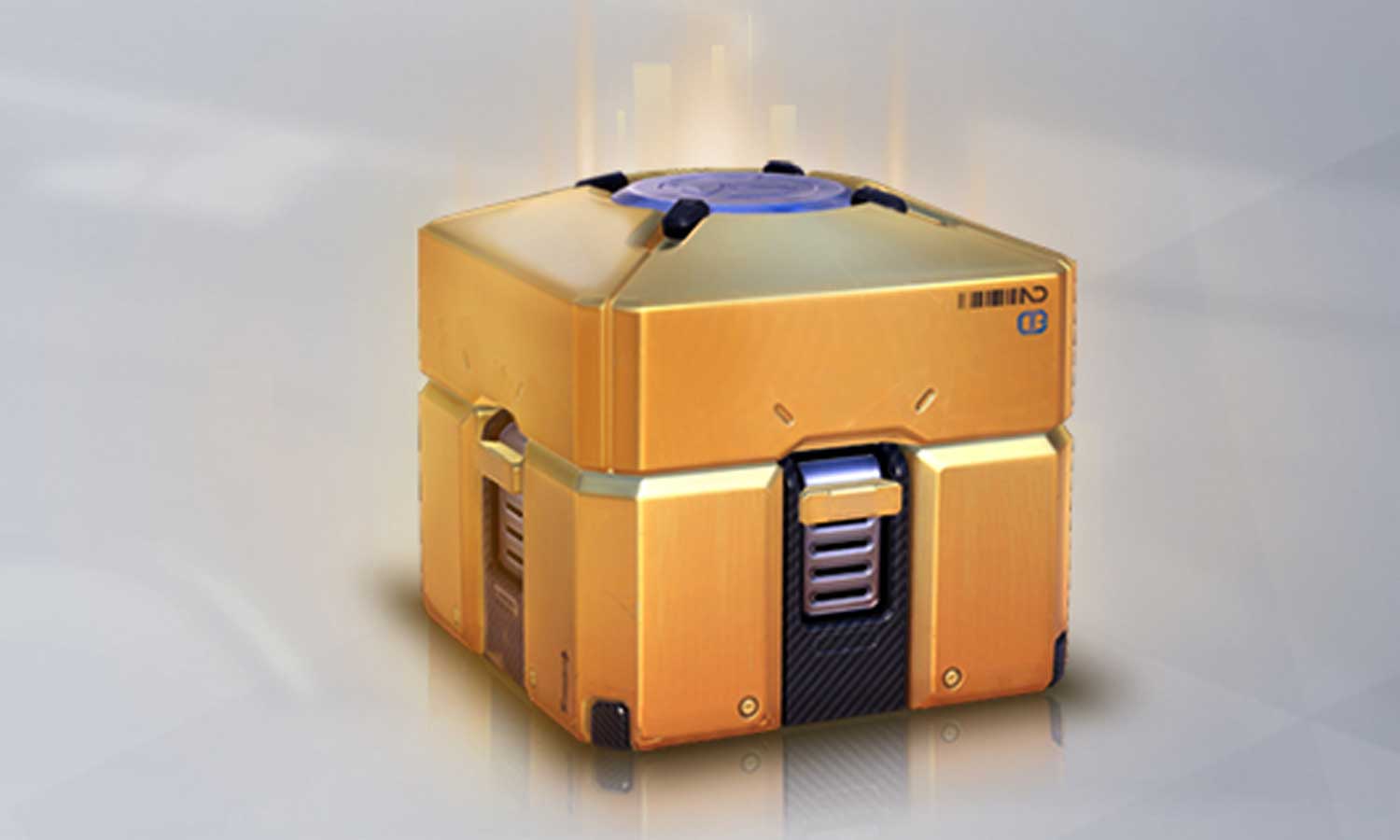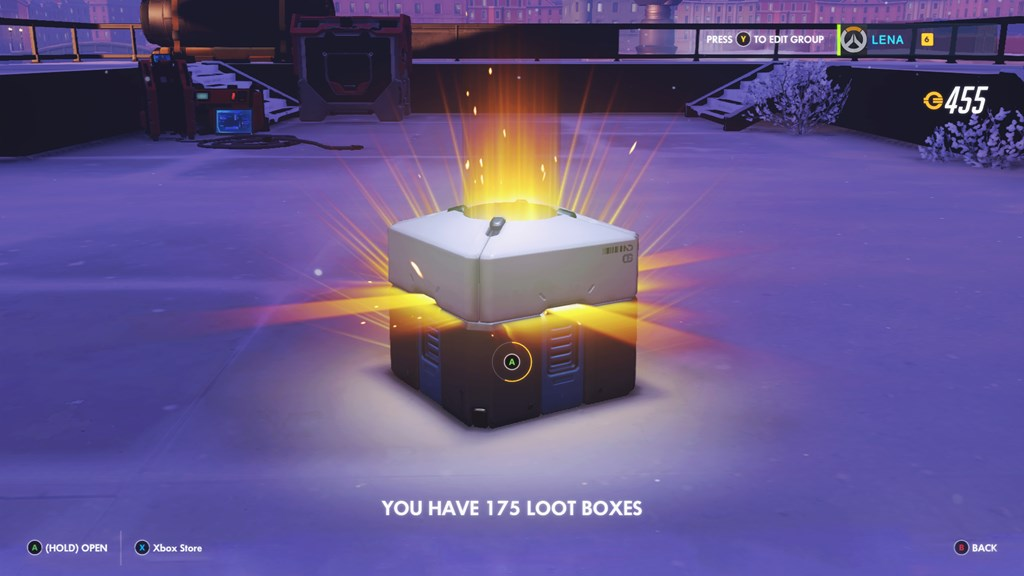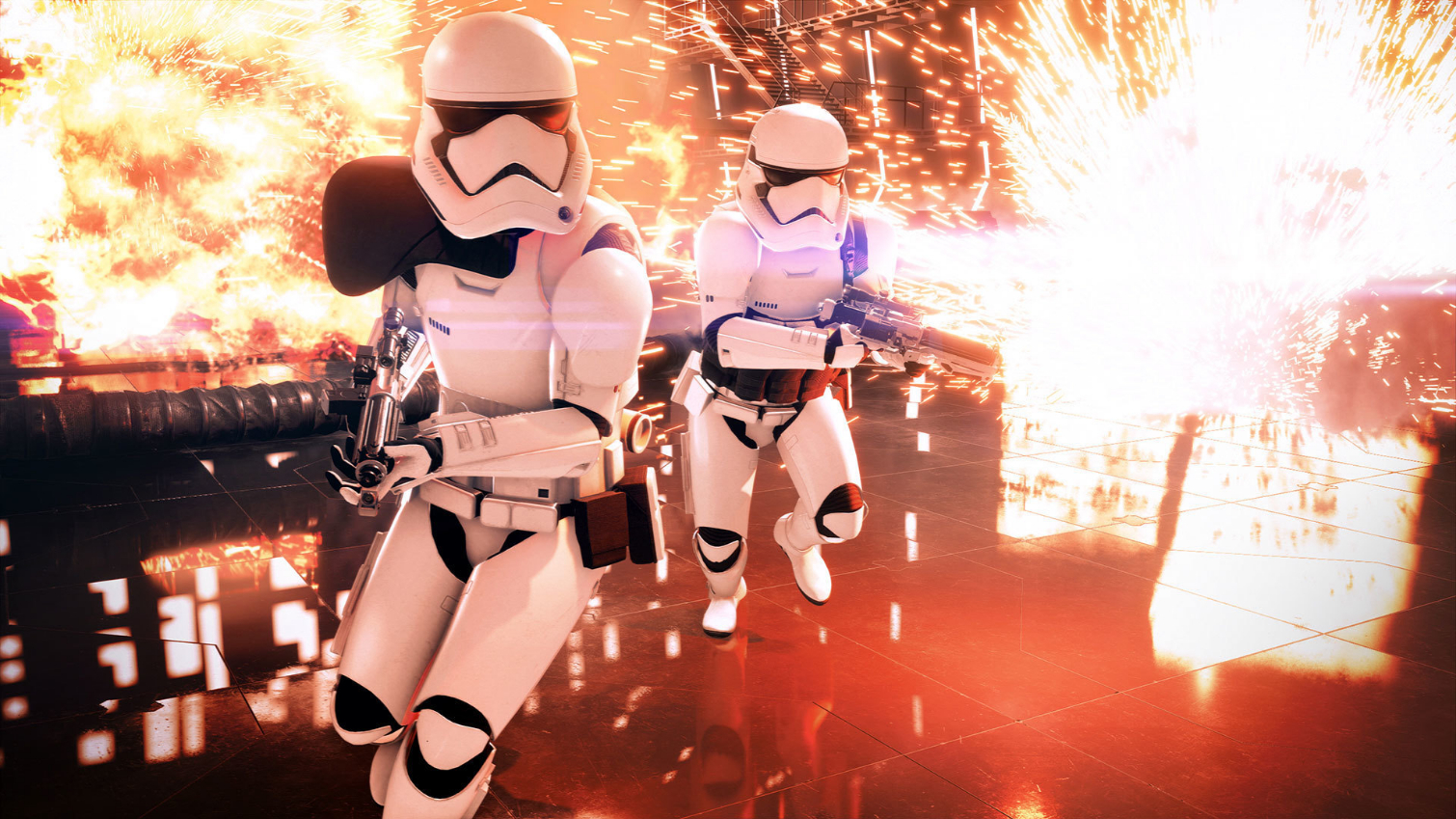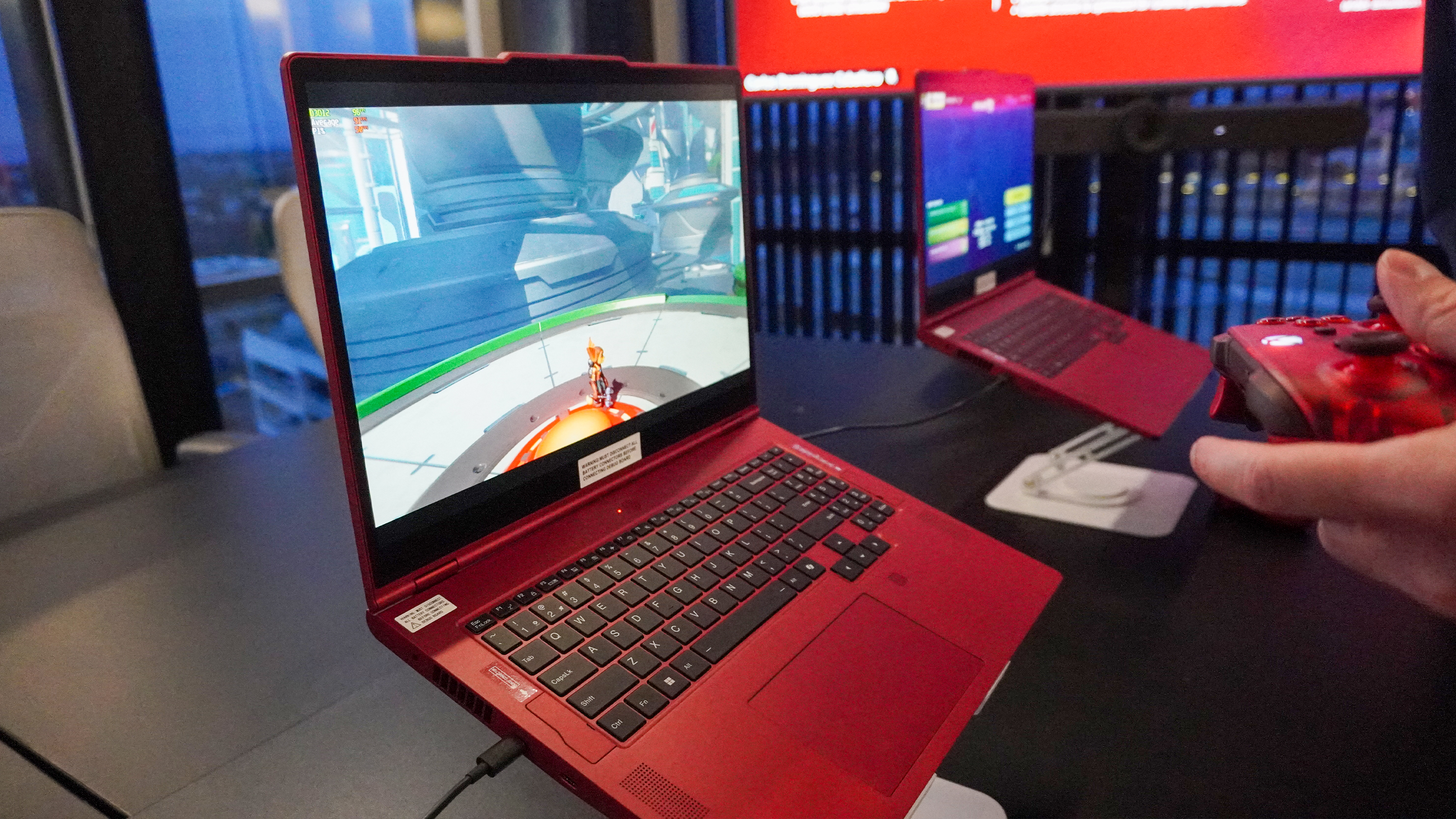What Are Loot Boxes? Gaming's Big Controversy Explained
"Why did my kid max out my credit card?" We'll explain

News about "loot boxes" is on the rise once again. The issue became national news prior to (and during the) release of Electronic Arts’ Star Wars Battlefront II, prompting an uproar from gamers who felt they were being forced to gamble to get the most out of the game. But a turn in the tide has given gamers hope, now that the ESA has launched an initiative to disclose loot box odds by 2020.
Loot boxes are digital grab bags that players have to spend real or in-game currency on, and the trick is that you never know what’s inside. Of course, it’s not that simple, as different games place different types of rewards in them.
Are loot boxes a new thing?
Random awards aren’t new in games, but the most modern wave can largely be traced back to two different origins.
The first is Blizzard’s Overwatch, which released in 2016. The game’s loot boxes feature cosmetic items, such as costumes, player avatars and voice lines for characters. You can’t pick which characters you get rewards for, so the items may or may not be for a hero you actually use. But none of the rewards affected actual gameplay, which may be why Overwatch wasn’t embroiled in controversy. While loot boxes are doled out for leveling up and completing certain missions, those who can afford to spend money on loot boxes can collect more items faster.

The second is free-to-play mobile games, which have long relied on small transactions to make money. Developers would artificially restrict gameplay in order to get players to invest in these “microtransactions” that would make the game more fun. These have since made their way to console and PC games as new characters, items and other in-game materials.
Which games feature loot boxes?
Loot boxes have become more and more popular in the last few years. Recent games featuring them include Apex Legends, Overwatch, Star Wars Battlefront II, FIFA 19, Middle-earth: Shadow of War, Gears of War 4 and Halo 5: Guardians. Even more games include microtransactions, which often let you pay real-world money for in-game currency.
Why do gamers hate loot boxes?
In the case of loot boxes, many gamers equate them to gambling. You open up a box and get items that may or may be what you want, or they may be worthless (though, unlike gambling, you always get something). Think of them like a digital pack of baseball cards, though at least you could sell baseball cards you didn’t want, or trade them for ones you do. That’s generally not the case in loot boxes.
Get instant access to breaking news, the hottest reviews, great deals and helpful tips.
This means that to get items they want, players may have to invest lots of money in multiple loot boxes until they hit the jackpot. How likely is that? As of now, it’s hard to tell, as most publishers don’t list the likelihood of getting certain items (Nintendo recently did in its new mobile game, Animal Crossing: Pocket Camp, when using items that get you random collections of bugs or fish).
As for microtransactions, the argument is that you’re paying for something that should already be in the game. Many refer to this as “pay to play.” In the case of Battlefront, it was far easier to pay for a ton of loot boxes filled with powerful cards for your characters, rather than spend dozens of hours grinding for them in-game.

Why do publishers include loot boxes?
At the end of the day, publishers are businesses, and they’re looking for a profit. And while EA and others are likely looking to make more money, it’s a bit more complicated than that.
Video game prices have largely been flat since the late 1990’s. While publishers fund developers working on cutting edge graphics with innovative gameplay, full voice acting and motion capture and, in some cases, continuing to support the game for years after release, they haven’t been charging more for those games. Publishers may argue that this is a way to get a greater return on investment so they can continue making more expensive, innovative games.
Are loot boxes gambling?
While microtransactions are fairly straightforward, many gamers suggest the random rewards from loot boxes may be a form of gambling.
In October 2017, though, the Entertainment Software Rating Board (ESRB), which rates games for age appropriateness and factors like violence or sexuality decided not to classify loot boxes as gambling. The Entertainment Software Association, which represents game companies, asserted to Glixel that loot boxes "are a voluntary feature in certain video games that provide players with another way to obtain virtual items that can be used to enhance their in-game experiences" and that they aren't a form of gambling.In February 2018, the ESRB announced the addition of an "in-game purchases" label to physical games that have loot boxes, DLC, downloadable skins or any other in-game purchase.
But that may change at the legal level. Rep. Chris Lee of Hawaii recently issued a statement referring to loot boxes as “predatory practices” by developers. He called Battlefront II a “Star Wars-themed online casino,” and while he thinks national change may be difficult, he wants to legislate against it at the state level.
In Belgium, the country’s gambling authority has declared Battlefront II’s loot boxes do constitute a game of chance and combine “money and addiction.” The commission reportedly wants the practice banned throughout Europe.
What can gamers (and parents) do?
If you’re a gamer yourself, you’ll have to wait and see. It sounds possible that legislative action of some sort may be on the horizon, though that can take time.
Alternatively, vote with your wallet. You can complain all you want about loot boxes and microtransactions, but if you buy those games (and make in-game purchases) , developers and publishers will keep utilizing them. If the Battlefront controversy is any indication, making your voice heard on forums and subreddits can actually make a difference.
If you’re a parent who doesn’t want your kid spending money on in-game items, you can check to see if games have microtransactions or loot boxes. The EnYou can also make sure that no payment method, such as a debit or credit card, are attached to consoles or accounts that they’re using.
As for publishers and developers, they’re likely watching what’s happening with Star Wars Battlefront II with a cautious eye. EA has put a pause on microtransactions and removed some of the most rare prizes from loot boxes in a hope to calm fans, and that could have a big impact on how the next wave of AAA games implement them.
What is the industry doing about loot boxes?
Michael Warnecke, Senior Policy Counsel at Entertainment Software Association, recently announced that Microsoft, Nintendo and Sony will require new and updated games that feature loot boxes to reveal the odds of receiving specific items by 2020.
The best part is that those three companies aren't the only ones participating in this initiative. Activision Blizzard, Bandai Namco Entertainment, Bethesda, Bungie, Electronic Arts, Take-Two Interactive, Ubisoft, Warner Bros. Interactive Entertainment and Wizards of the Coast are also working on greater transparency for in-game purchases.
However, there are some developers that haven't taken up this initiative yet, such as 505 Games, Capcom, CI Games, Deep Silver, Disney Interactive Studios, Epic Games, Focus Home Interactive, Gearbox Publishing, GungHo, Intellivision Entertainment, Kalypso, Konami, Magic Leap, NCsoft, Natsume, Nexon, Rebellion, Riot Games, Sega, Square Enix, THQ Nordic, Tencent and Marvelous.
Hopefully we'll see more AAA companies jump on board sooner rather than later.
Andrew E. Freedman is an editor at Tom's Hardware focusing on laptops, desktops and gaming as well as keeping up with the latest news. He holds a M.S. in Journalism (Digital Media) from Columbia University. A lover of all things gaming and tech, his previous work has shown up in Kotaku, PCMag, Complex, Tom's Guide and Laptop Mag among others.
-
enfurno If you are going to be a writer, then write the truth. Loot boxes have become more and more popular in the last year. <- "WITH DEVELOPERS"Reply -
Thunderballs You forgot to mention the great Star Citizen Scam of selling 000's of $ of items to gamers when you dont have a game and are more likely to go bankrupt before you get close to delivering one !Reply -
isamuelson Game of War is the biggest purveyor of this filth. It has gotten so out of hand that the game is SO imbalanced now that a 1 troop march can actually zero out a huge army based on what boosts you have via potions, runes, buffs, etc. And every week, Machine Zone releases a new update that requires massive transactions if you want to get to the next highest level. And some require items that you can ONLY get via purchasing packs, which usually run $99. It's a massive scam and it's amazing how many people STILL throw money at it, yet they complain endlessly how they have to keep spending, yet they continue to do so. It's definitely a form of gambling because even just purchasing one pack does NOT guarantee that you'll get all the items you need to upgrade to the next highest level. And since some items that are required to upgrade are NOT available through grinding, you MUST pay to get them. By the time MZ starts releasing those "required" items for "free" via grinding, they'll already be releasing the next upgrade to pretty much make those items obsolete and you'll have to start purchasing again. This is gambling, period. And the only way to combat is it to STOP supporting them. Problem is, people are SO addicted to it that they lose track of what they spent. It's scary and it's sad. These loot boxes and micro-transactions have ruined the gaming industry. How I pine for the days of old when games had substance over visual flair. Those games are the ones I find myself pulling out and playing over and over again. I miss those days. Game of War, Mobile Strike, The Walking Dead March To War, etc all need to go away or change their model so that the spenders don't have the upper advantage. But, it also results in the game having nothing BUT spenders as they run the casual gamers off of the platform and then it dies. And the only ones happy are the companies that have raped your wallet as you sit and watch all that money you sunk into it go down the drain as the game is taken offline.Reply
 Club Benefits
Club Benefits






